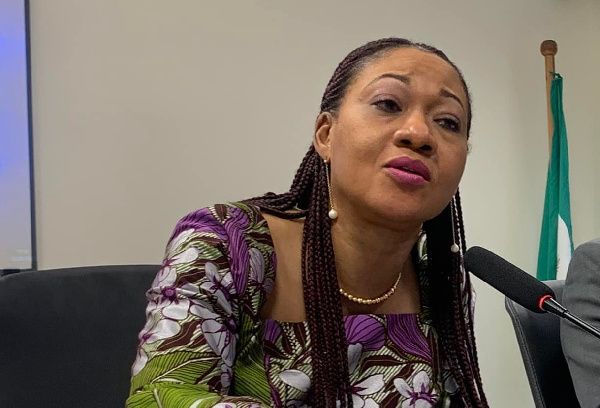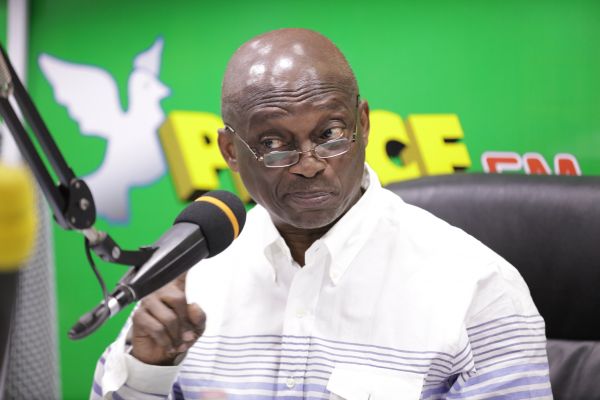
The IMANI Center for Policy and Education accused the country's electoral body, Electoral Commission (EC) of “misappropriation”, “wastage”, and “misuse” of scarce resources.
IMANI has thetefore petitioned the chairperson of the Commission for Human Rights and Administrative Justice (CHRAJ) asking her to investigate the Electoral Commission’s decision to retire and dispose some BVDs.
In the same letter, IMANI also referred to the Office of the Special Prosecutor to investigate a specialised corruption risk assessment suited to the unique capabilities of the electoral commission.
IMANI’s petition to CHRAJ follows the Electoral Commission’s decision to auction old and obsolete elecotrla equipmets.
Announcing the filing of the petition on, May 6, the Executive Director at IMANI, Franklin Cudjoe, said he together with other fellows at IMANI Ghana were deeply concerned by the mannere with which the EC handled the nation’s scarce resources in the discharge of its duties.
“At a time when the nation cannot service its debts and is in the midst of a tight IMF-supervised fiscal regime, such egregious conduct cannot be tolerated,” portions of the petition read.
Excerpts of the letter read, ‘’We write to invoke the jurisdictions, powers, mandates, and duties under chapters 18 and 24 of the 1992 Constitution of the Republic of Ghana, which entrust the care of national resources and the charge of ensuring sound conduct among public officers to the Commission on Human Rights and Administrative Justice (CHRAJ/” the Commission”). We also refer to section 7 of Act 456 in this same regard.
Franklin Cudjoe explained, ‘’IMANI rejected the “obsolescence” claim because it had come by information to show that the EC had, until 2020, operated a policy of buying new devices to replace faulty or degraded ones, and thus the portfolio of BVMS components dated from different points of time. Most critically, there were many BVDs and BVRs that had been bought after 2011, some as late as 2018 and 2019. The entire EC’s portfolio of BVDs and BVRs could not be truthfully said to date from 2011, and therefore obsolete.’’
Mr. Cudjoe, in the petition, lamented that the EC’s conduct in the premature retirement and eventual disposal of tens of thousands of laptops, digital cameras, printers, scanners, and fingerprint verifiers, has been motivated by a conflict between its duties under various laws to judiciously apply the resources of the country for the good of the citizenry, on the one hand, and its tendency to take decisions favourable to various commercial vendors and transactors, on the other hand.
“Furthermore, we stated our belief that the EC’s most recent conduct has been necessitated by a need to curtail transparency and accountability, and thus was motivated by a collective conflict of interest and potential corruption. By its actions, it is attempting to erase inventory records and physical evidence of the blatant falsehoods it has told over the last four years regarding the purchase history of expensive electoral equipment.”
“We asserted our longstanding claim that the EC’s electoral equipment is a portfolio of multiple items, bought and refurbished at different intervals between 2011 and 2019. That portfolio does not uniformly date to 2011 or 2012 as the EC has falsely and persistently claimed, and could thus not be so uniformly obsolete as to warrant a firesale to mysterious bidders, who have kept the prime portions for themselves and discarded the rest to be used as scrap. Ghana cannot continue to be milked in this fashion,” he further stated.
Referring to the prices of some of the devices, Franklin Cudjoe added that some of the devices cost more than $3000 each, and together are worth tens of millions of dollars.
He added, “At worst, they should have been donated to other government agencies that routinely buy similar machines at great cost to the state or transparently sold through a properly regulated public tender under the strict rules of the Public Procurement Act to ensure strict value for money.”
“We do not believe that the EC and its commercial counterparties in these transactions complied with the highest standards of data handling and protection required in the transfer and/or disposal of such sensitive equipment. At any rate, none of them had the requisite certifications to be trusted with such a task,” he stressed.










